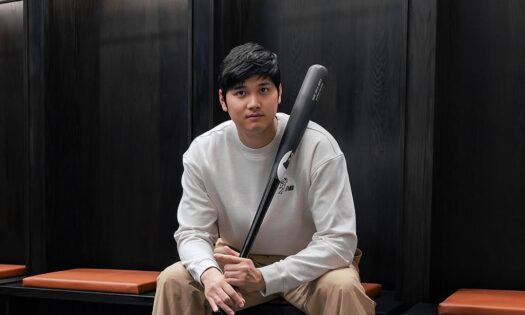It always begins with a question. One tossed into a barbershop debate and murmured at the period of a seventh-inning stretch—“Can anyone today really match Babe Ruth?” Not just in numbers, but in mythical status. That blend of dominance on the mound and pure terror at the plate? It’s sacred territory. Enter Shohei Ohtani, the modern-day unicorn.
A two-way phenom who’s forced the baseball world to rethink what’s possible. But just as fans start linking his name to Ruth’s, a former MLB player steps in with a splash of cold water. Not only is the comparison bold—it could be completely off base. So here’s the deal—Foul Territory TV threw out a fire starter of a question: “Between Shohei Ohtani and Babe Ruth, who will have more career innings pitched?”
And the answer? Brutally honest. Erik Kratz, an ex-MLB player, did not pull punches: “Not even close. I don’t think it’ll be close either… Let’s say they get 130 innings out of him. He’s well short. It’s just not going to be close.” That’s not a hot take—it’s a full-on reality check. Let’s talk why.
First off, this isn’t about talent. Ohtani’s got it in buckets. But he’s pitching in a different universe compared to Ruth. Back in the 1910s, Ruth threw 300+ innings in a season. Ohtani? He’s never made 32 starts in a year. His max is 166 innings in 2022. That’s almost half of what Ruth used to clock in a single season.
Between Shohei Ohtani and Babe Ruth, who will have more career innings pitched?@ArenaClub x @ErikKratz31 pic.twitter.com/NXnJFdGCAh
— Foul Territory (@FoulTerritoryTV) April 13, 2025
And that’s not the only thing driving this take. It’s also about how teams use pitchers today. The same ex-MLB voice doubled down: “I don’t ever see him getting over 25 starts in a regular season… They have to figure out another piece of their rotation because he can’t throw every five days”.
Translation: even if he’s healthy, Ohtani’s workload is capped by design. The Dodgers didn’t give him $700 million to grind him into the mound every five days. They know they’ll need a six-man rotation and extra arms just to keep their ace fresh. And if the offense dips because of fatigue? Well, maybe he’s a reliever down the road. That’s how valuable his bat is.
So while Babe Ruth was a warhorse throwing complete games in wool uniforms, Ohtani’s navigating pitch counts, rehab protocols, and a whole different beast of baseball logic. The innings comparison? It’s not just apples to oranges—it’s apples to steak. And in today’s game, teams are choosing to sizzle over strain every time.
Ohtani’s dual threat
While Shohei Ohtani’s pitching numbers may never mirror Babe Ruth’s legendary feats, it’s important to understand the bigger picture. Ohtani’s ability to contribute both as a pitcher and as a hitter is changing the landscape of baseball, and that’s exactly why the Ruth comparison persists. Ruth was a game-changer in his era, and Ohtani is doing the same today—not just with his numbers but with how he challenges the very structure of how we view two-way players.
The Dodgers, in particular, face a unique dilemma as they try to leverage Ohtani’s dual-threat potential. They’re not just paying for a great pitcher or hitter; they’re investing in a transcendent player who can fill multiple roles over the course of a season. This forces teams to rethink their roster structure, creating flexibility they never had before. Does Ohtani spend the majority of his time hitting, or do they roll the dice and get him back on the mound? It’s a delicate balance that speaks to his long-term value, both on and off the field.
Ohtani is more than just a pitcher with a bat—he’s the centerpiece of a modern-day transformation in how teams approach roster-building. Unlike Ruth, who didn’t have the luxury of modern training regimens and scientific analysis, Ohtani’s ability to thrive in both roles is the result of cutting-edge preparation and endless commitment. This isn’t about a one-off season; it’s about reshaping the game for the next generation of baseball players, who will undoubtedly look to Ohtani as the benchmark for what’s possible.
In conclusion, the debate between Shohei Ohtani and Babe Ruth brings to light the evolution of baseball’s expectations for two-way players. While Ohtani’s unique skill set and versatility are remarkable, Ruth’s legacy remains unmatched in many ways. The real question isn’t who will have the better record, but how Ohtani’s impact will reshape the future of baseball. With a shifting landscape, it’s clear that players hold an iconic place in the sport’s history. As Ohtani continues to write his own chapter, fans and analysts alike will be watching closely.
The post Shohei Ohtani Draws Intriguing Babe Ruth Comparison As Ex-MLB Star Drops Massive Take On Pitching Record appeared first on EssentiallySports.
